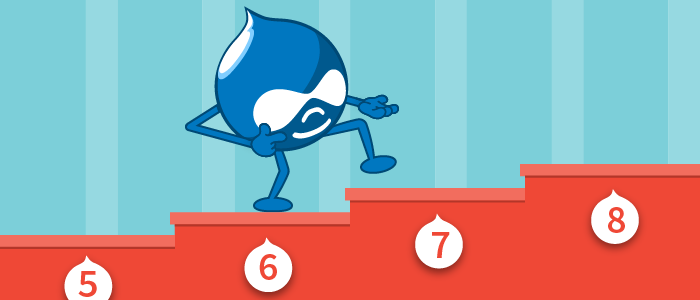Blog Insights
What’s Your Drupal Upgrade Path?

To ease in the transition, the Drupal community will continue to support Drupal 6 for three months after the release of D8. After that, there will be no new security patches for the D6 core or contributed modules. Additionally, as the Drupal development community dives into the latest version of Drupal, their attention will be shifted away from D6, leaving fewer options for its support. The release of D8 is truly retirement time for D6.
But, what version of Drupal should you choose?
D8 is shiny and new and boasts some pretty cool functionality. However, it’s still in its infancy and will need to be coddled and grown to reach its full potential. That will come with time as the community contributes to its growth and maturation. The good news is there are simple criteria that will guide you to determining if you are best suited to upgrade to D7 or D8.
Reasons to Redesign on Drupal 7
As a general rule, D7 is architecturally superior to D6 in many ways, and many of the third-party modules in existing D6 websites could be replaced with more robust solutions built on the D7 foundation modules, such as view and Panels. Most of the significant improvements in D7 come from the third-party modules, as they take advantage of the better APIs in D7.
D7 eliminates the need for much of the custom code that often powers D6 Commons sites. And if custom code must be used, there are better ‘hooks’ in D7 that allow any custom code to work more efficiently and be more maintainable.
If your website requires the following functionality at launch, you are best suited to redesign onto D7:
- Workflows that are anything beyond simple “published/unpublished”
- Community “groups” features
- Drag and drop layouts in admin interface
- Solr/faceted search
Reasons to Choose Drupal 8
D8 is released candidate 1 now. At its release, D8 will be a solid option for simple “brochure” websites that can take advantage of the core functionality, and do not need complex contributed modules at launch.
Bottom Line
If you’re aiming to launch a complex Drupal website in the first few quarters of 2016, you’ll be better served with Drupal 7.
If you have questions about the Drupal 8 release and where your existing site fits into this, please get in touch and we’d be happy to talk it through with you.